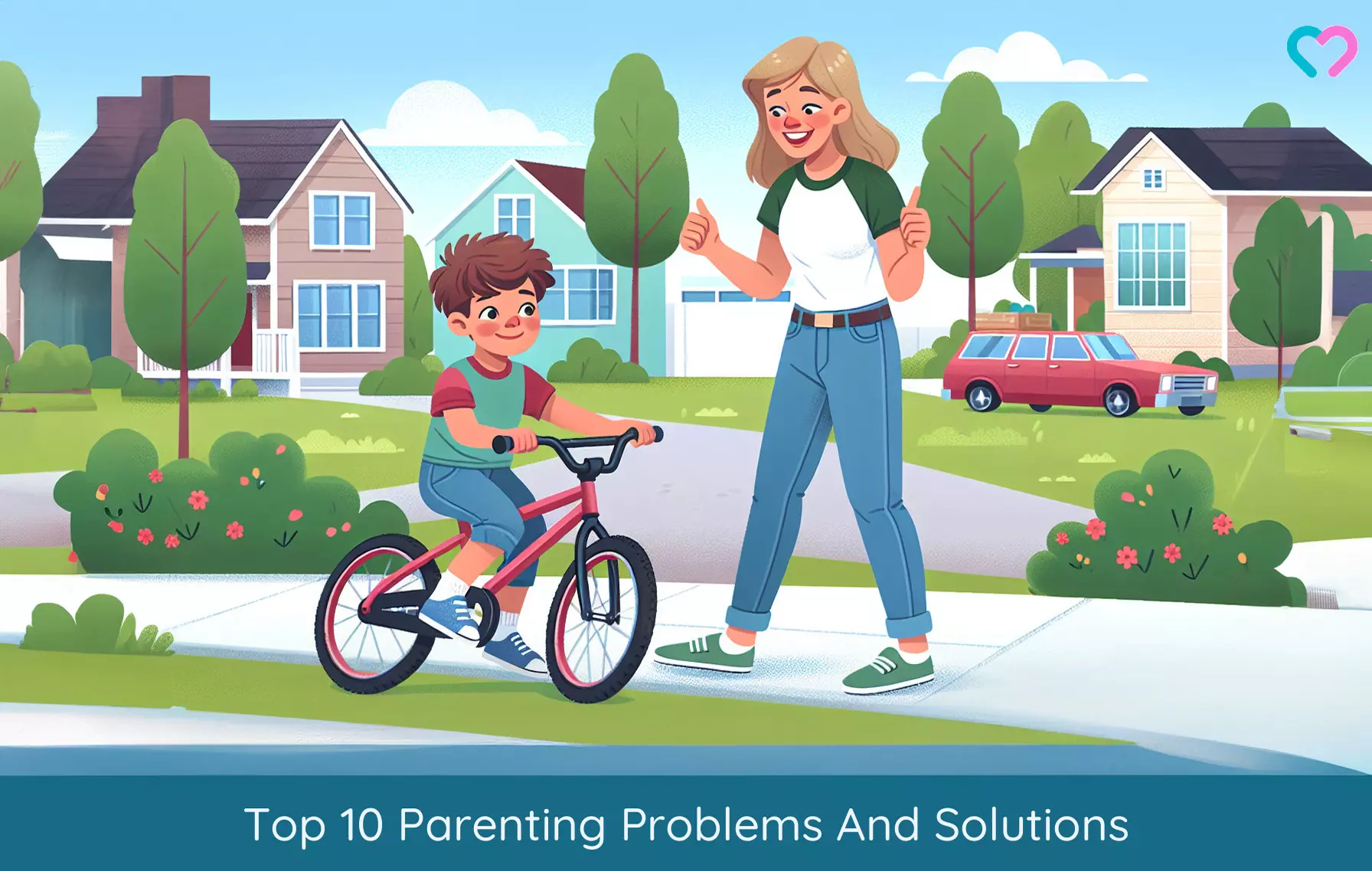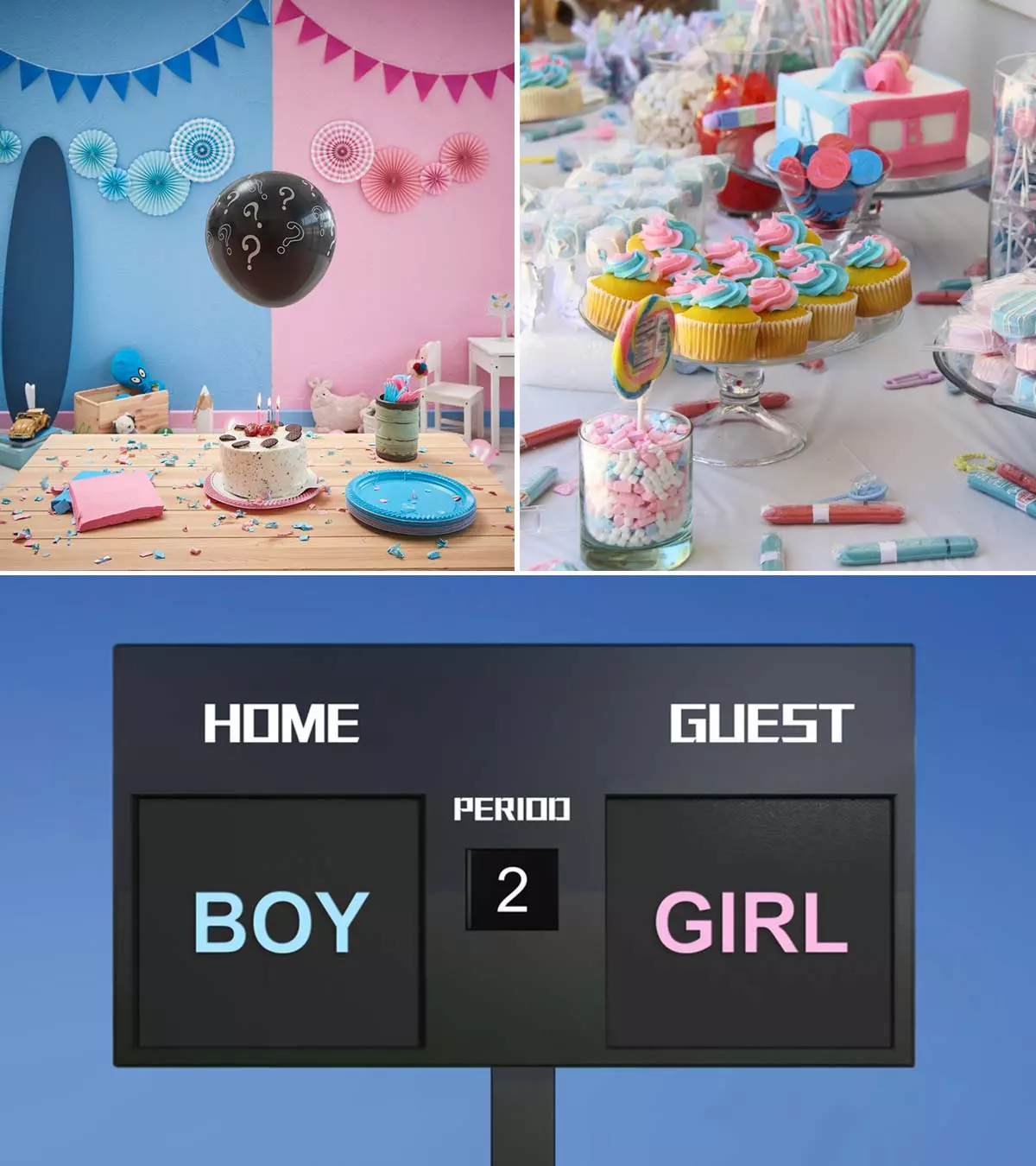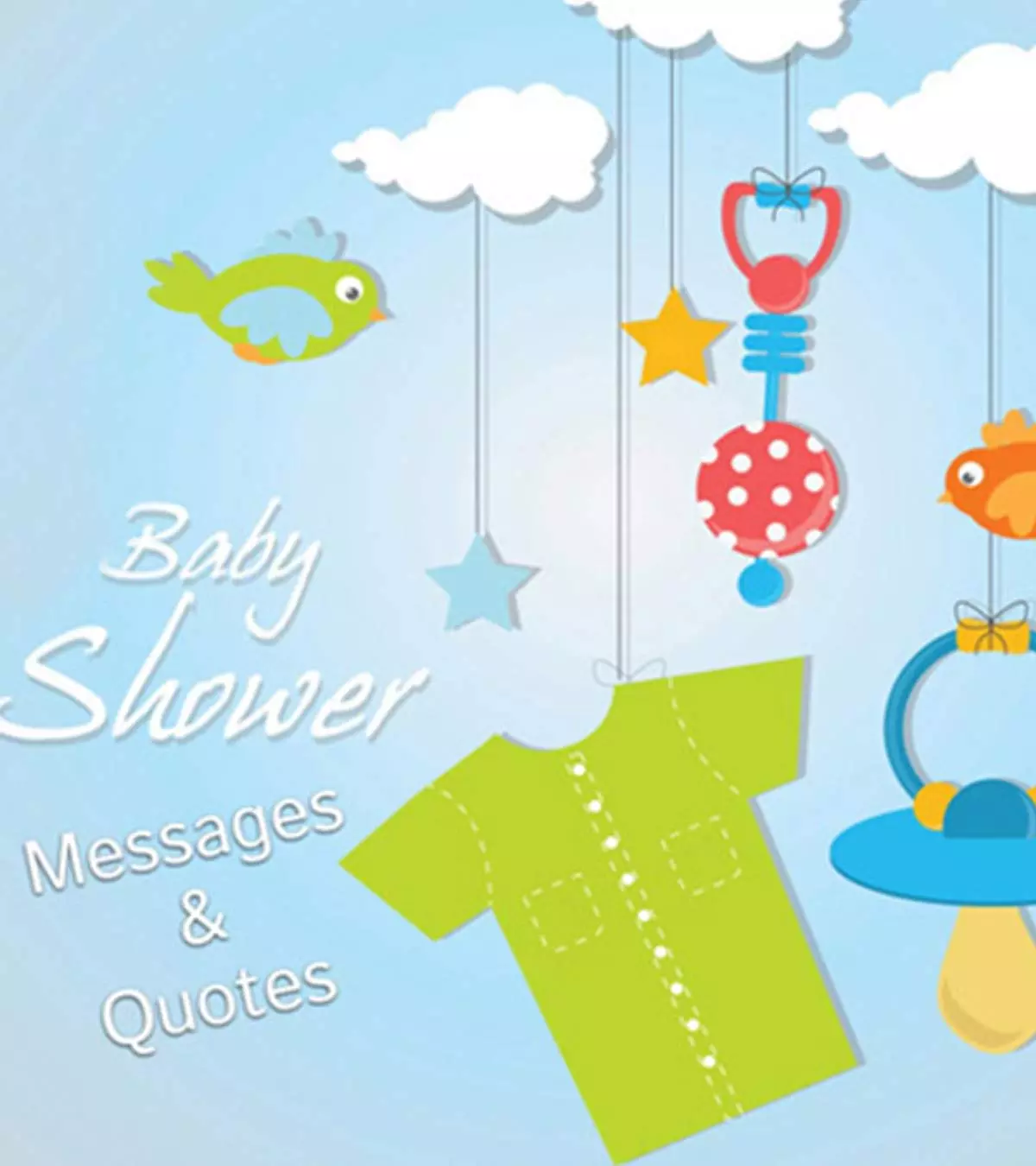
Image: Shutterstock
Often, parenting problems are not taken as seriously as they should be. Although these are common struggles that most parents go through, it does not take away from the fact that it can be quite stressful. As parents, you want to maintain harmony in the house and keep your children safe and happy. As parents, you want to maintain harmony in the house and keep your children safe and happy. But their constant rebellious attitude and tantrums don’t make it an easy task. No matter how much you try to keep your composure, it is natural to lose your cool at times. So here we discuss the common problems faced by parents and effective ways to deal with them.
Key Pointers
- Common parenting problems include frequent tantrums, disobedience, misbehavior, and conflicts in children.
- Effective communication is key in identifying the reasons for such behavior and addressing the issues.
- Daily challenges faced by parents include children’s resistance to studying, poor eating habits, and addiction to gadgets.
- Calming oneself and establishing rules and discipline in the household can effectively address any parenting problem.
- To help a shy child, parents can praise their efforts, encourage self-expression, and teach coping mechanisms for disappointments.
What Do You Mean By Parenting Issues?
Parenting is one of the most fulfilling and challenging experiences. Parenting issues refer to various challenges, concerns, and dilemmas that parents may face while raising children. These issues can arise at different stages of a child’s development and can be influenced by various factors, including childcare, discipline, finances, daily routine, and household chores, to name a few. However, it is important to note that parenting issues can vary widely based on individual circumstances and the unique needs of each child.
Top 10 Common Parenting Problems And Solutions
Next time, instead of going crazy at your little one, try out our solutions for top 10 parenting problems:
1. Frequent Tantrums
This is one of the most annoying parenting problems that can easily get on parents’ nerves. A child who starts crying at the drop of a hat or who does not listen to reason is difficult to manage (1).
Solution:
- In such a situation it is important to not lose your cool. It is best not to react instantly.
- Tell your child that you will listen to him only after he stops crying.
- It is important to show your kids that you are not unnerved by their temper tantrums.
- As a parent, it’s your responsibility to manage your child’s rebellious attitude and tantrums with proper guidance and support.
 Point to consider
Point to consider2. Children Who Do Not Obey

Children often do this to show their importance. Saying no to what you want them to do and disobedience in taking orders is very common.
Solution:
Don’t try to curb your child’s autonomy.
- At the same time, do not tolerate rude behavior.
- You can always respect their opinions, but teach them what is right and wrong.
- Your calmness and composure will definitely soothe them (2).
- Reward them for the behavior you want from them rather than opting for punishments (2).
3. Unmanageable Sibling Rivalry
For those of you who have two or more children, constant fights among the siblings can be one of the biggest challenges. Frequent fights and arguments over nothing can drive any parent nuts (3).
Solution:
- The best way to handle this is to separate siblings after a fight to make them cool down.
- Don’t try to be a judge by deciding who is right and who is wrong.
- Also make some rules in advance so that there are lesser issues to be dealt with later on.
 Quick fact
Quick fact4. Children Telling White Lies

Children often resort to telling lies, not knowing that you are aware of their lying (4).
Solution:
- Never punish them or scold them for lying, instead, talk to them about the consequences of their actions. This will help hone their decision-making skills and help them make better choices.
- Instead of being judgemental or angry, explain that lying will not lead them anywhere.
- Give them some time and let them learn on their own that lying is harmful. Set examples of what problems lying can lead to.
5. Aggressive And Violent Attitude
An angry child is stressful for parents. Frustration aggravates when complaints start pouring in about your child beating others and resorting to little violence (5).
Solution:
- Try to find out the reasons for his anger and understand his anger.
- Most of the time, your child does have a valid reason.
- If there are frequent anger outbursts, talk to a therapist for anger management to rule out the serious manifestations later.
6. Complaining And Whining Kids

Almost all children whine and complain, but some do more of it. You may consider it as a problem and start ignoring them and do little to understand the complaints of your little ones (6).
Solution:
- Most times you may fail to understand that your children complain or whine only to seek your attention.
- No matter how trivial, talking to your child often helps rather than side lining it.
Paula E. Bird, a retired university teacher, explains how she deals with whining students. She says, ”When my students whine, they are generally letting me know that they need my personal attention and help in learning how to do something. I naturally gravitate to their vicinity the minute I hear the whine and give the student some personal attention and physical correction (i).’’
7. Resistance During Studies
Children hate to study and no parent tolerates such behavior. As a parent you may try to coerce your kid to study hard and put pressure on them to perform well (7).
Solution:
- When your child is genuinely uninterested in studies, find out what he is interested in.
- Pressuring your child to study can never result in anything good.
- Let your child tread this path slowly and learn from the experiences.
- Set a good example through role modeling. If you want to help your child study and read books more often, start reading yourself.
8. Poor Eating Habits

Children often love all the junk food in the world and hate anything nutritious. As a parent you try your best to feed them by force and by deception, but this never works out (8).
Solution:
- Don’t force your child to eat anything.
- Try to explain the consequences.
- Prepare healthy meals your child likes.
- Help your child develop a taste for nutritional food by getting them involved in the cooking process.
A mother of two and primary school teacher, elaborates, in her blog, on the importance of getting creative while making healthy foods for children. In her blog, she explains, ”After a recent visit to our local Farmer’s Market, the boys and I got busy reading Oliver’s Vegetables and then painted with every possible vegetable we could!! Before the boys had afternoon tea, I had prepared a surprise for them – a muffin tray full of the fruits that are in the story of The Very Hungry Caterpillar. Get creative when you want your children to eat fruits and veg…. find a book about the food and read it to the kids while they munch on a healthy snack (ii).’’
9. Addiction To Gadgets
Children these days are born with affinity towards gadgets. Their addiction can bring down your patience level to deal with the same (9).
Solution:
- Try to control the hours your child spends on such gadgets.
- Set some disciplinary rules that need to be adhered to diligently.
- Introduce them to other interesting hobbies and activities.
10. Shy And Lack Of Confidence

Some children shun company and are always lonely. This can be a cause for concern, as parents may feel their child is getting left out.
Solution:
- Encourage your children and praise their efforts
- Understand his temperament.
- Teach them how to cope with failure and disappointments.
- Give them lots of love and help them express themselves better.
- Get in touch with a therapist if he/she is not able to mix with peers at all (10).
Frequently Asked Questions
1. What causes parenting issues?
Parents and the family dynamics highly influence a child’s physical, emotional, and overall well-being. Sometimes issues such as parental conflicts, fatigue, substance abuse, socio-economic factors, self-centered attitude, and career ambitions can lead to parenting problems. Addressing these issues early on can save kids from a traumatic childhood.
2. How can problems with parenting be prevented?
Parenting problems can have a detrimental effect on children, and sometimes the impact lasts a lifetime causing difficulties in their adulthood too. Early identification and prevention are important. Some things you can try as a parent are – spending quality time with children, keeping a check on your child’s behavior both in your presence and absence, educating your child about the right and wrong, disciplining them with empathy and patience, and avoiding being rude or harsh.
3. What can I do to prevent my child from engaging in risky behavior or substance abuse?
Have open and honest communication with your child about the risks of drug abuse. Patiently and actively listen to their concerns. Acknowledge their emotions and validate their experiences. Teach them how to assess drug use risks and make good choices. Guide your child to practice assertiveness when faced with situations involving drugs and share positive coping strategies to deal with emotional challenges that can trigger drug abuse (11).
4. How can I teach my child the importance of responsibility and accountability?
Give your child age-appropriate tasks and responsibilities. Begin with small tasks and gradually increase the complexity. Clearly communicate your expectations and the consequences of not fulfilling obligations. Demonstrate responsible behavior to encourage children to be accountable. Offer them guidance and support whenever the child feels stuck. Allow them to deal with problems independently and evaluate their performance to promote self-reflection. Praise their efforts to motivate them to continue demonstrating accountability and responsibility.
5. What is the best way to discipline a child without being too harsh or lenient?
When considering how to discipline a child, set clear, age-appropriate rules and expectations. Apply the rules consistently and ensure that consequences for breaking them are predictable and fair. Acknowledge and reward their behavior and efforts through positive reinforcement and other encouraging methods. Plan age-appropriate and logical consequences. Use time-out or a cooling-off period to help your child self-reflect on their behavior. Most importantly, approach discipline as a teaching opportunity. Tell your child why their behavior was inappropriate, its impact on others, and alternative ways to handle similar situations in the future (12).
6. How can I teach my children the value of money and financial responsibility?
Introduce the concept of money and its value to your child early. Model responsible financial behavior. Give your child a weekly or monthly allowance to learn budgeting and money management. Involve them in family purchases and explain the comparison shopping concept. Introduce them to debt and borrowing concepts and regularly share ways to earn, save, and manage finances independently.
7. How do cultural changes and societal expectations influence parenting styles and challenges?
The modern emphasis on independence, emotional awareness, gender equality, and more, can shape one’s parenting style. Furthermore, your children’s educational demands and your career demands can add to new challenges. As society changes, you should try to balance traditional parenting with modern ideas.
8. What resources can I use for handling parenting challenges?
You may rely on parenting books and online articles, join community support groups, or seek counseling services for advice, guidance, and emotional support.
Watch out for these parenting problems, as they could negatively affect your child’s future and overall development. For example, sometimes, when children throw tantrums, they show disinterest in studies and meals, which could make you wonder how to deal with them. This is where teamwork comes in; as a parent, you must understand your child’s temperament, likes, and dislikes to solve these problems. Also, you must maintain calm, communicate appropriately with your child, and deal with them through positive reinforcement for kids.
Infographic: Solutions For Common Parenting Problems
Now that you have become a parent, you need to be aware of everything your child does. Of course, each child is different, and so are the challenges you may face, but the infographic below includes some parenting problems that are common to every parent and how to tackle them. Scroll on! Illustration: Momjunction Design Team
Illustration: Top 10 Parenting Problems And Solutions

Image: Dall·E/MomJunction Design Team
Personal Experience: Sources
MomJunction articles include first-hand experiences to provide you with better insights through real-life narratives. Here are the sources of personal accounts referenced in this article.
i. 6 Ways to Address Whining.https://teachsuzuki.blogspot.com/2014/03/6-ways-to-address-whining.html
ii. Creative Healthy Eating For Children.
http://rhymetime4kids.blogspot.com/2010/07/creative-healthy-eating-for-children.html
References
- Temper Tantrums.
https://www.stanfordchildrens.org/en/topic/default?id=temper-tantrums-90-P02295 - The Disobedient Child.
https://www.healthychildren.org/English/ages-stages/gradeschool/Pages/The-Disobedient-Child.aspx - Sibling Rivalry.
https://www.mottchildren.org/posts/your-child/sibling-rivalry - When Children Lie.
https://www.healthychildren.org/English/family-life/family-dynamics/communication-discipline/Pages/When-Children-Lie.aspx - Angry Kids: Dealing With Explosive Behavior.
https://childmind.org/article/angry-kids-dealing-with-explosive-behavior/ - How to Stop Your Child’s Whining.
https://www.nationwidechildrens.org/family-resources-education/700childrens/2022/04/how-to-stop-your-childs-whining - How to Help Your Child Get Motivated in School.
https://childmind.org/article/how-to-help-your-child-get-motivated-in-school/ - Picky Eating: How to Help Change a Child’s Food Habits.
https://www.nationwidechildrens.org/family-resources-education/700childrens/2018/06/picky-eating - 10 Best Strategies to Stop Your Child’s Screen Addiction.
https://www.uhhospitals.org/Healthy-at-UH/articles/2015/09/10-strategies-to-stop-screen-addiction - Self-esteem in children.
https://www.pregnancybirthbaby.org.au/self-esteem-in-children - Drug Abuse Prevention Starts with Parents.
https://www.healthychildren.org/English/ages-stages/teen/substance-abuse/Pages/Drug-Abuse-Prevention-Starts-with-Parents.aspx - What’s the Best Way to Discipline My Child?
https://www.healthychildren.org/English/family-life/family-dynamics/communication-discipline/Pages/Disciplining-Your-Child.aspx - Making Physical Activity a Part of a Child’s Life.
https://www.cdc.gov/physical-activity-basics/adding-children-adolescents/?CDC_AAref_Val=https://www.cdc.gov/physicalactivity/basics/adding-pa/activities-children.html
Community Experiences
Join the conversation and become a part of our nurturing community! Share your stories, experiences, and insights to connect with fellow parents.
Read full bio of Shreshtha Dhar
Read full bio of Kalpana M
Read full bio of Rohit Garoo
Read full bio of Apoorva K
















